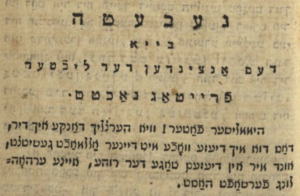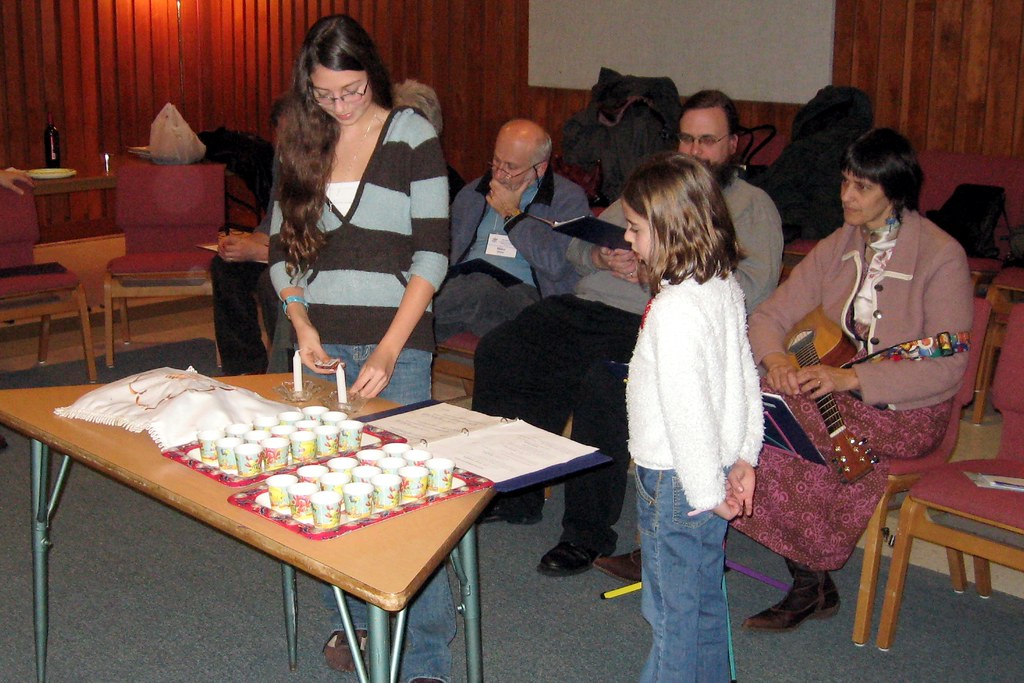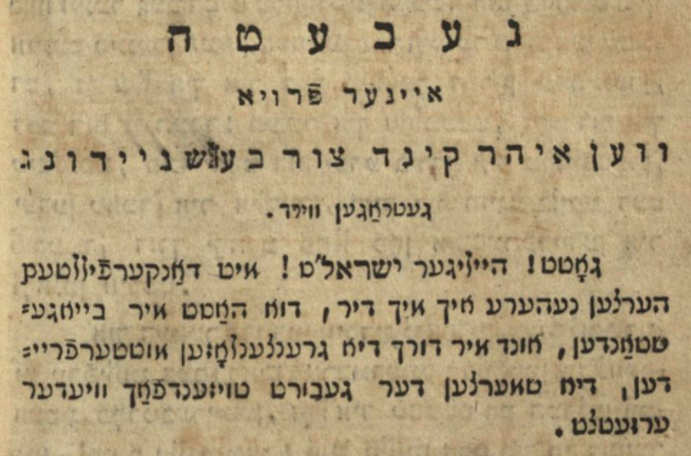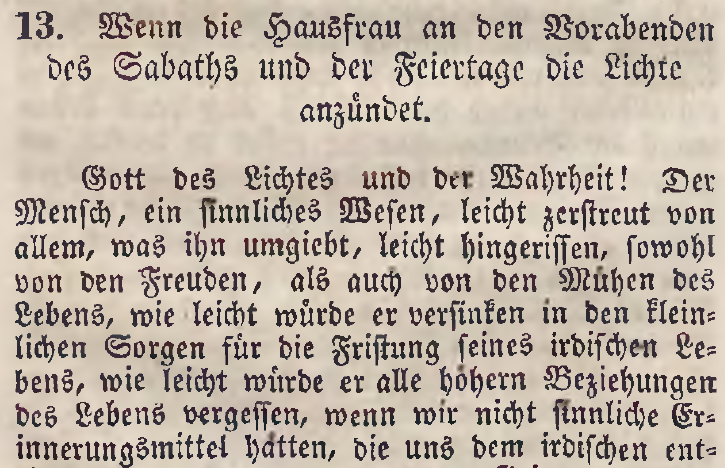| Source (German) | Translation (English) |
|---|---|
Gebete bei dem Anzünden der Lichter Freitag nachts. |
Prayer at the kindling of the Friday night lights. |
Himmlischer Vater! Wie herzlich danke ich dir, das du mich diese Woche mit deiner Allmacht geschützt, und mir in diesem Tage der Ruhe, eine Erholung verschafft hast. |
Heavenly Father! How sincerely I thank you for protecting me this week with your omnipotence, and for this day of calm, a rest you have given me. |
Aber nicht zum Müßiggange und Wohlleben, nicht zum geschäftlosen Ruhen und untätigen Rasten, hast du Allvater diesen heiligen Tag bestimmt. Nein, Allgütiger! Durch Untätigkeit ehret dich der Mensch nicht, deine väterliche Huld hat uns die Ruhe dieses Tages bloß darum verliehen, auf das wir frei von allen irdischen Sorgen und von aller Arbeit ruhend, desto eifriger über das Heil unserer Seele, über deine unendliche Güte, über die grenzenlosen Wohltaten die du uns täglich erweisest, über unsere Bestimmung, und über den Lohn der uns jenseits erwartet; ungestöhrt nachdenken sollen. |
But not for idleness and well-being, not for indolent rest and idle rest, you All-Father have appointed this holy day. No, All-good One! Man does not honor you by idleness, your fatherly grace has given us the rest of this day only so that we, free from all earthly worries and resting from all work, may think all the more eagerly about the well-being of our soul, about your infinite goodness, about the boundless benefits you show us every day, about our destiny, and about the reward that awaits us on the other side; undisturbed. |
Darum hast du Allgütiger Vater! Uns befohlen das wir die Feier dieses heiligen Tages durch das Anzünden der Lichter beginnen sollen, damit wir uns erinnern mögen, das es unsere heilige Bestimmung sei, nach dem ewigen Lichte der göttlichen Gnade zu ringen, und das wir dir danken für das Licht der wahren Religion und der heiligen Gesetze, womit du uns beleuchtet hast. |
That is why you, All-good Father! commanded us to begin the celebration of this holy day by kindling the lights, so that we may remember that it is our holy destiny to strive for the eternal light of the divine grace, and that we thank you for the light of the true religion and the holy laws with which you have illuminated us. |
Oh Vater im Himmel! Dieses vorgeschriebene Gebot habe ich mit Inbrunst und mit Andacht verrichtet. Ich flehe nun zu dir, gnadenvoller Schöpfer aller Wesen! Sende dein Licht deine Wahrheit und belichte meine Schritte auf das ich nie den Pfad der Finsternis betrete, sondern immer nur im Licht deiner beseeligenden Religion wandle. Beschütze mich auch an diesem geheiligten Tage vor jeder Gefahr und vor jedem Unglücke auf das ich mit Seelenruhe und mit freudiger Heiterkeit den Schabbat nach deinem göttlichen Willen feiere. |
O Father in Heaven! I have performed this prescribed commandment with fervor and devotion. I now beseech you, gracious Creator of all beings! Send your light, your truth, and illuminate my steps so that I may never tread the path of darkness, but always walk in the light of your blessed religion. Protect me also on this holy day from every danger and from every misfortune, so that I may celebrate the Shabbat with peace of mind and with joyful serenity according to your divine will. |
Gelobt seist du Gott! Der du den Schabbat heilgst. Amen! |
Praise be to you, God! who sanctifies the Shabbat. Amen! |
“Gebete bei dem Anzünden der Lichter Freitag nachts” was translated/adapted by Mayer Wolf and published in his anthology of teḥinot, תְּחִנּוֹת בְּנוֹת יְשֻׁרוּן Gebethbuch für gebildete israelitisch Frauenzimmer (1828) on pp. 107-109.
Daniel Bar Sadeh-Weise prepared a transcription/conversion into Latin script of the original German set in Hebrew script and vaybertaytsh/mashket type. No changes were made to the German itself (to modernize the language or style). This transcription provided machine-readable text for a machine translation by DeepL, which I then proofread for accuracy. We welcome corrections and improvements. –Aharon Varady
Source(s)


“Gebete bei dem Anzünden der Lichter Freitag nachts | Prayer at the kindling of the Friday night lights, a teḥinah by Wolf Mayer (1828)” is shared through the Open Siddur Project with a Creative Commons Attribution-ShareAlike 4.0 International copyleft license.










Leave a Reply